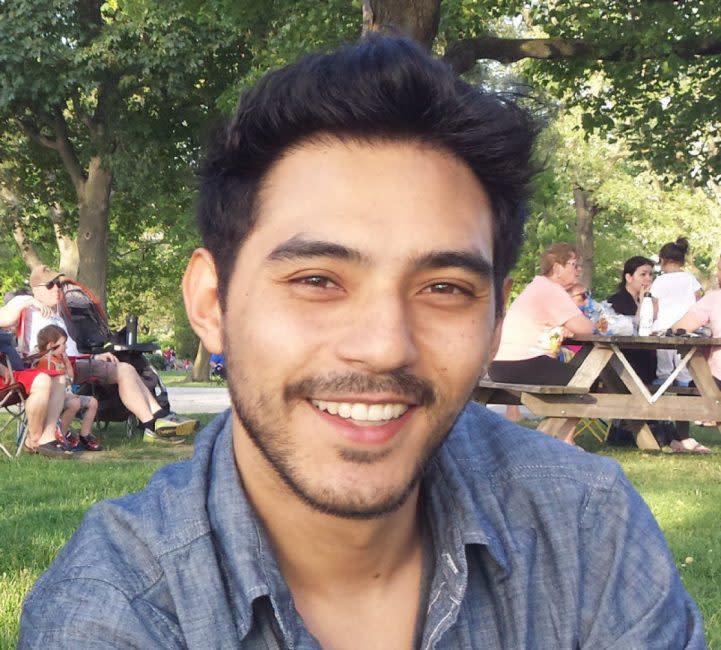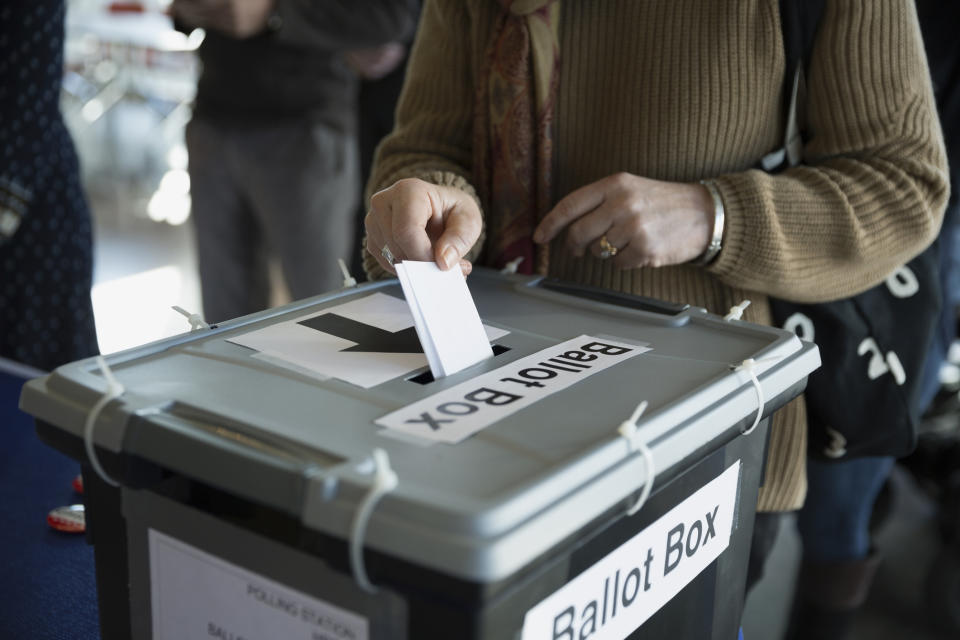Should there be a None of the Above option on the election ballot?

A court challenge by a University of Ottawa law student to have a clearly listed “None of the above” option on federal election ballots is gaining the attention of the Canadian public as it starts heading through the court system.
Law student David Rodriguez said he didn’t vote in the 2015 federal election because “There was no point in showing up — if I spoiled my ballot it wouldn’t have meant anything.”
Rodriguez has been battling the federal government since November for the right to have “None of the above” as one of the options voters can check off in upcoming elections, according to the Toronto Star.
In his Statement of Claim, Rodriguez says voting is a form of expression and not being able to explicitly express disappointment with the selection of candidates infringes on freedom of expression.
But not everyone agrees with the claim that infringes on his free speech rights.
“You can always return your ballot to the election officer,” says Nelson Wiseman, director of the Canadian Studies Program at the University of Toronto. “There’s no logic in what he’s saying.”
In an interview with Yahoo Canada Wiseman said he would be surprised if the case even made it to a hearing. According to him, the right to vote none of the above is not a violation of the Section 2 right to freedom of speech and expression.
“What’s keeping him from speaking?” Wiseman asks.
Under Section 2 of the Canadian Charter of Rights and Freedoms, citizens of Canada the right to “freedom of thought, belief, opinion and expression,” among other rights. It appears Rodriguez is suing for infringements to his Section 2 rights, based on his statements.

A University of Ottawa law student is suing for the right to have a “none of the above” option on federal election ballots. Photo from Getty Images
But he could have a better chance of winning in court if he sued for infringements to his Charter rights under Section 3, which covers democratic rights. Under the Charter, “every citizen of Canada has the right to vote in an election of members of the House of Commons or of a legislative assembly.” It could be more convincingly argued failing to have a none of the above option represents a violation of that right.
In some ways, Rodriguez’s court challenge mirrors the campaign to move to proportional representation. While seemingly unrelated, that also sought to challenge the way the votes of Canadians are counted. But if supporters of proportional representation have failed to convince the courts the first-past-the-post system makes their vote meaningless, the path to getting a none of the above option on federal ballots will be equally challenging.
In a 2011 court case, Daoust v. Quebec, four Quebec voters said first-past-the-post was a violation of their Charter rights. The case was dismissed on the grounds that Canadians have the right to effective representation, not absolute parity of representation. The court put it quite succinctly in its ruling, saying, “Section 3 does not advert to the composition of Parliament subsequent to an election, but only to the right of each citizen to a certain level of participation in the electoral process.”
“The courts have read that [Section 3 of the Charter] to mean a fair and free election, that the current system is as fair as any other voting system,” says Duff Conacher, an adjunct professor at the University of Ottawa and co-founder of Democracy Watch, a citizen group advocating for democratic reform.
“I could see the court saying the same thing. You don’t have a right to have your vote for none of the above be counted separately from a spoiled ballot or the count of people who stay home.”
Ontario’s attempt at ‘None of the Above’
There is even a None of the Above party in Ontario, which plans on fielding candidates in all of the province’s 122 ridings in the upcoming election. The party promotes its values as the “3R’s of direct democracy…Referendum, Recall and Real electoral and legislative Reforms” as its platform. In many ways, the party espouses the core beliefs of many Ontarians who may be disillusioned with the dominant parties at Queen’s Park.
So there will be a none of the above option in the ballot, albeit not the one Rodriguez seeks.
While the right to vote none of the above hasn’t been challenged on the federal level until now, four provinces already have such processes in place to vote that way: Alberta, Saskatchewan, Manitoba and Ontario. But oftentimes, the provincial election agencies don’t easily advertise voters in those provinces have the right.
Ontario voters have had the right to vote none of the above since 1975. Elections Ontario has information on that right in an obscure corner of its website, according to Conacher.
“If all it says is here’s how you vote, go vote for a candidate at the ballot station, that tells people that the only way for them to vote is to go vote for a candidate, which is a lie,” he says.
That only changed when Democracy Watch publicized voters had the right to do so.
After publicizing it, the ballot declined rate increased by nearly 13 times, says Conacher, with 0.6 per cent of the electorate voting none of the above.
Nevertheless, there are questions about what would happen in the unlikely, but not impossible, scenario, the “None of the above option” wins in a riding. How would that riding be represented in the House of Commons? Would there be a byelection? Would there be an interim MP? Perhaps most importantly, how much would party policies change if their candidates lost to “none of the above”?
These are all questions that have not been answered in the quest to have the right to vote none of the above in federal elections. The Liberal government, meanwhile, has requested a summary judgment on the challenge. It will be heard at the end of February or in mid-April.



